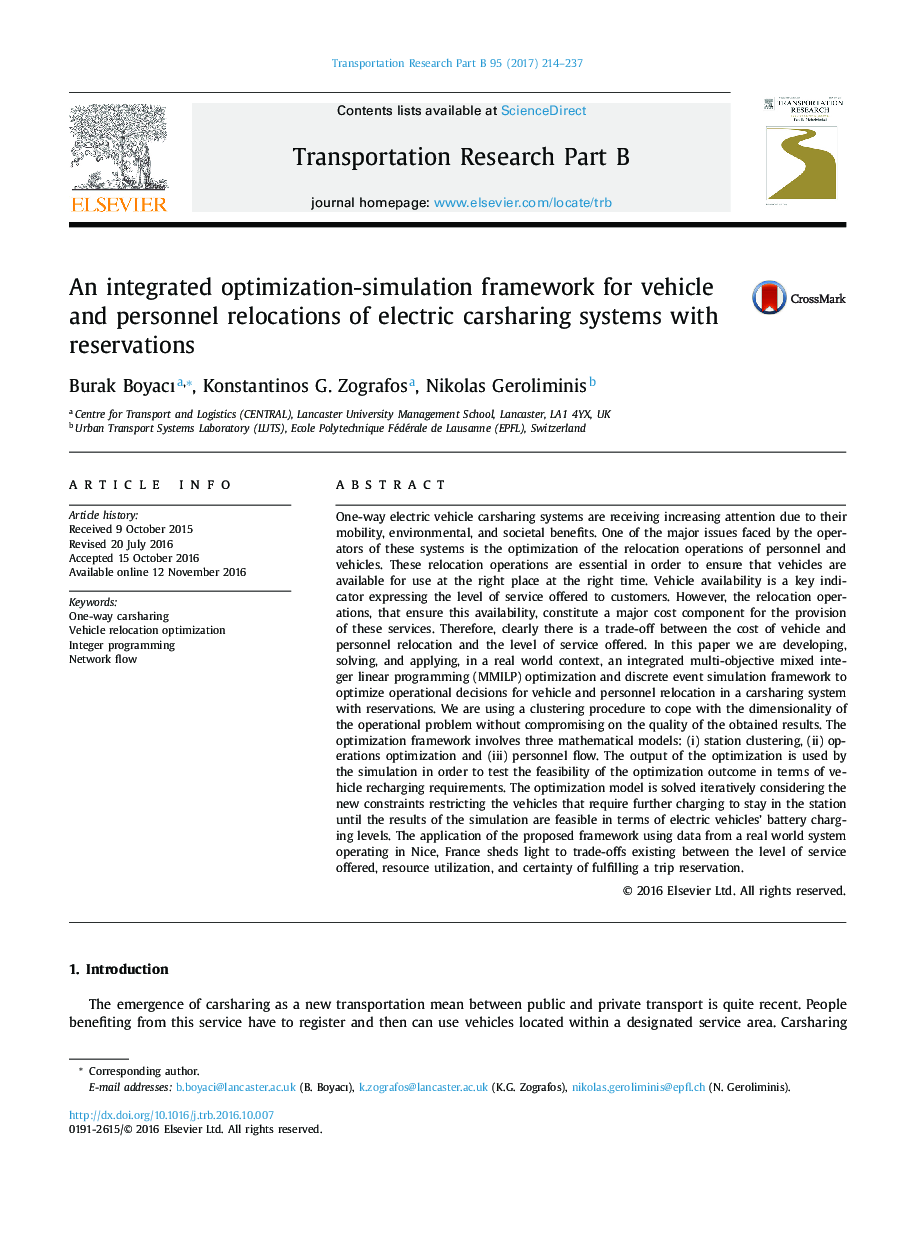| Article ID | Journal | Published Year | Pages | File Type |
|---|---|---|---|---|
| 5127098 | Transportation Research Part B: Methodological | 2017 | 24 Pages |
â¢Develop an optimization framework for the operational planning problem of one-way electric carsharing systems.â¢Propose a method to decide on the relocations of vehicles, movements of personnel and accepting/rejecting rental requests.â¢Integrate charging level feasibility restrictions in the optimization framework with a developed discrete event simulator.â¢Apply the optimization framework to a large scale real world one-way electric carsharing system.â¢Investigate different policies through optimization for serving the demand requests.
One-way electric vehicle carsharing systems are receiving increasing attention due to their mobility, environmental, and societal benefits. One of the major issues faced by the operators of these systems is the optimization of the relocation operations of personnel and vehicles. These relocation operations are essential in order to ensure that vehicles are available for use at the right place at the right time. Vehicle availability is a key indicator expressing the level of service offered to customers. However, the relocation operations, that ensure this availability, constitute a major cost component for the provision of these services. Therefore, clearly there is a trade-off between the cost of vehicle and personnel relocation and the level of service offered. In this paper we are developing, solving, and applying, in a real world context, an integrated multi-objective mixed integer linear programming (MMILP) optimization and discrete event simulation framework to optimize operational decisions for vehicle and personnel relocation in a carsharing system with reservations. We are using a clustering procedure to cope with the dimensionality of the operational problem without compromising on the quality of the obtained results. The optimization framework involves three mathematical models: (i) station clustering, (ii) operations optimization and (iii) personnel flow. The output of the optimization is used by the simulation in order to test the feasibility of the optimization outcome in terms of vehicle recharging requirements. The optimization model is solved iteratively considering the new constraints restricting the vehicles that require further charging to stay in the station until the results of the simulation are feasible in terms of electric vehicles' battery charging levels. The application of the proposed framework using data from a real world system operating in Nice, France sheds light to trade-offs existing between the level of service offered, resource utilization, and certainty of fulfilling a trip reservation.
